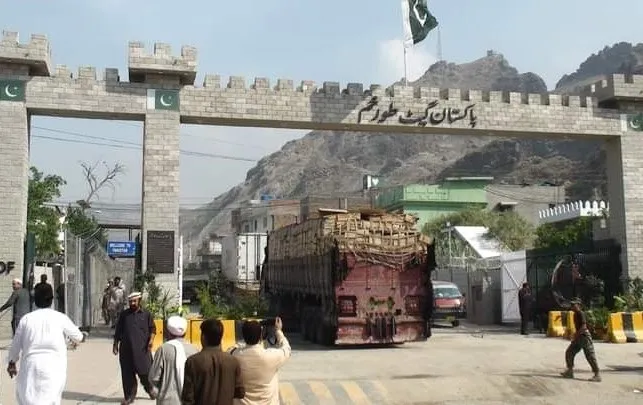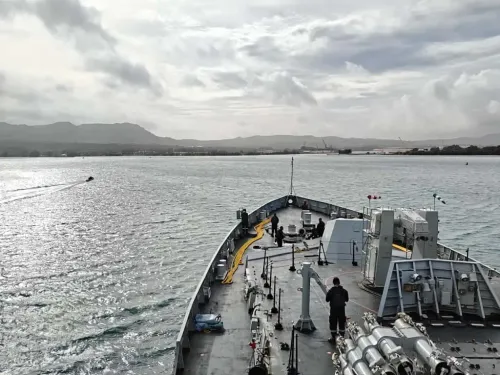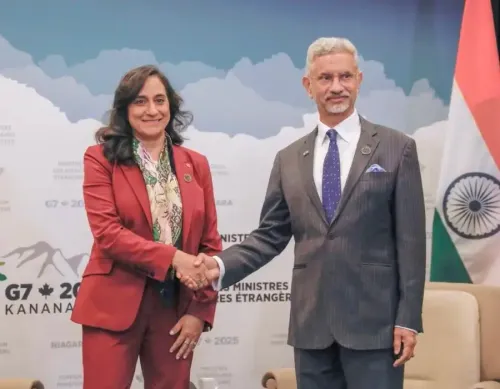Torkham Border between Pakistan and Afghanistan Reopens After 25 Days

Synopsis
Key Takeaways
- Torkham border reopened at 1 PM after 25 days.
- Sealed due to border disputes and tensions.
- Ceasefire agreed until the next JCC meeting.
- Daily trade worth $3 million and 10,000 crossings.
- Agreement to halt construction in disputed areas.
Islamabad, March 19 (NationPress) The Torkham border crossing linking Pakistan and Afghanistan was reopened at 1 PM Pakistan time on Wednesday following a closure that lasted 25 days.
The border was initially shut on February 21 due to escalating tensions stemming from disputes over the border.
On March 4, the situation deteriorated when negotiations aimed at reopening the crossing failed, leading to intense exchanges of gunfire between border security forces. These clashes resulted in the death of an Afghan Taliban border guard and injuries to two more individuals.
In the aftermath, ongoing negotiations were facilitated by local tribal elders along with diplomatic efforts to restore normalcy.
A flag meeting took place at the border on Wednesday morning, attended by representatives from both nations. The announcement to reopen this crucial trade route was made post-meeting. Additionally, a ceasefire has been agreed upon by both sides, which will be effective until the next session of the Joint Coordination Committee (JCC).
Syed Jawad Hussain Kazmi, the head of the Pakistani Tribal Jirga, stated, “We are pleased with the Afghan authorities' decision. They have consented to dismantle the controversial structure that escalated tensions.”
The Torkham border is vital for trade between the two nations, facilitating daily transactions worth approximately $3 million and accommodating over 10,000 individuals.
Issues arose on February 21 when Afghan forces attempted to establish a military checkpoint near the border. The Pakistan Frontier Corps (FC) objected, asserting that the checkpoint was being set up on Pakistani territory, leading to the border's closure.
On March 9, a Pakistani jirga convened with a delegation from the Afghan Chamber of Commerce, formally expressing a commitment to adhere to previously established protocols regarding the border's reopening.
Kazmi reported, “The joint jirga agreed to a ceasefire and scheduled a second meeting on March 17, attended by a 36-member Pakistani delegation and a 25-member Afghan Taliban delegation.”
Furthermore, the jirga consented to maintain the ceasefire until April 15, with both countries agreeing to halt construction activities in disputed areas.
This decision is being perceived as a constructive step from both nations, as it aims to not only revive economic activities but also alleviate ongoing tensions along the porous borders.









